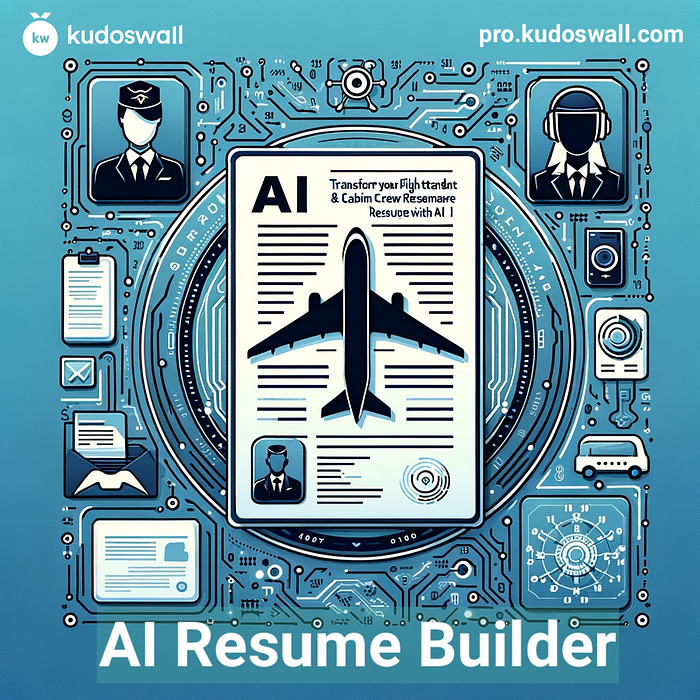-
Air Hostess Resume Example
-
Aircraft Mechanic Maintenance Technician Resume Example
-
Commercial Airline Pilot Resume Example
-
Air Traffic Controller Resume Example
-
Aviation Dispatcher Resume Example
-
Airline Pilot
-
Drone Pilot/UAV Operator Resume Example
-
Cabin Crew
-
Aviation Security Specialist Resume Example
-
Aerospace Engineer Resume Example
Frequently Asked Questions (FAQ)
1. What roles are available in the aviation industry?
The aviation industry offers a wide range of roles, from operational positions like pilots, flight attendants, and air traffic controllers to support roles such as aircraft mechanics, aviation dispatchers, and security specialists. The industry also offers opportunities for drone pilots, cabin crew, ground handling staff, and many more.
2. What qualifications are required to become a flight attendant?
To become a flight attendant, you typically need a high school diploma or equivalent, customer service experience, and the ability to pass a medical examination. Training is usually provided by the airline upon selection. Knowledge of multiple languages, strong interpersonal skills, and a professional appearance are often required. For airlines like Emirates, Delta, and British Airways, additional criteria may apply.
3. How can I become a commercial airline pilot?
To become a commercial airline pilot, you will need to earn a commercial pilot license (CPL), accumulate flight hours, and complete type ratings for specific aircraft. Flight training typically starts with a private pilot license (PPL), followed by advanced training and exams. Some countries may have additional requirements or certifications.
4. What skills should I highlight on an aviation resume?
Your aviation resume should emphasize industry-relevant skills such as:
- For Flight Attendants: Customer service, safety procedures, emergency management, multilingual abilities.
- For Pilots: Flight hours, aircraft type ratings, navigation skills, communication, and decision-making.
- For Aircraft Mechanics: Diagnostics, repair, compliance with safety standards, and specialized certifications.
5. What is the role of an air traffic controller?
Air traffic controllers manage the safe and efficient flow of aircraft in and out of airports, as well as in airspace. They communicate with pilots to provide takeoff, landing, and route guidance while ensuring minimum separation between aircraft to prevent collisions.
6. Do aviation resumes require a professional headshot?
In many aviation roles, particularly for cabin crew and flight attendants, a professional headshot is common and sometimes required, especially in regions like Europe, Asia, and the Middle East. For other roles, such as pilots and mechanics, photos are generally not necessary unless specifically requested.
7. What certifications are required for an aircraft mechanic?
Aircraft mechanics typically require an Airframe and Powerplant (A&P) license issued by regulatory bodies such as the FAA in the United States. Additional certifications may be needed based on specialization, such as engine maintenance or avionics.
8. How do I become a cabin crew member for airlines like Emirates or Qatar Airways?
To join the cabin crew of top airlines such as Emirates or Qatar Airways, you must meet their eligibility criteria, which often include minimum age, height requirements, language proficiency, and a customer service-oriented personality. Training is provided after successful selection, and you must pass all required medical tests.
9. What is a typical day like for a drone pilot?
Drone pilots operate unmanned aerial vehicles (UAVs) for various purposes, including aerial surveying, mapping, inspection, and surveillance. A typical day may involve planning flight paths, adhering to regulatory requirements, conducting drone maintenance, and analyzing collected data.
10. Are there remote jobs available in the aviation industry?
Yes, certain aviation roles can be performed remotely, such as aviation customer service representatives, dispatchers, and some flight planning and operational coordination roles. However, many positions require physical presence due to safety regulations and hands-on duties.
11. What is the role of an aviation security specialist?
Aviation security specialists are responsible for maintaining airport and aircraft security. Their duties include threat assessment, passenger and baggage screening, emergency response, and collaboration with law enforcement to prevent potential security breaches.
12. How do I write a resume for a pilot?
When creating a pilot resume, focus on key details such as total flight hours, type ratings, licenses, and safety records. Highlight your experience with specific aircraft, any training or certifications completed, and demonstrate strong communication and decision-making skills.
13. What courses or training are available for aspiring air hostesses?
Aspiring air hostesses can enroll in courses focused on customer service, safety protocols, and emergency management. Many reputable institutions and training centers offer air hostess and cabin crew training, often providing certifications recognized by airlines.
14. Can I apply for aviation jobs without prior experience?
Yes, many entry-level positions in aviation do not require prior experience. For example, flight attendants, ground staff, and junior maintenance roles often provide on-the-job training. Highlighting strong soft skills, a willingness to learn, and relevant certifications can improve your chances.
15. What are the common challenges faced by aviation professionals?
Aviation professionals often deal with long and irregular working hours, high stress during critical situations, stringent safety regulations, and physical demands, particularly for cabin crew. Pilots, air traffic controllers, and security specialists may face intense decision-making and responsibility for passenger safety.
16. Are there specific aviation-related certifications that boost career prospects?
Yes, certifications such as the Airframe & Powerplant (A&P) license for mechanics, Airline Transport Pilot (ATP) certification for pilots, and Certified Aviation Manager (CAM) for management roles can significantly enhance career prospects in the aviation sector.
17. How can I make my aviation resume stand out?
To make your aviation resume stand out:
- Tailor your resume to the specific job role.
- Highlight relevant skills, licenses, and certifications.
- Include measurable achievements, such as safety records or operational efficiencies.
- Use industry-specific keywords.
- Analyze your resume to find ATS score & enhance Your CV
Career Advice for Aviation Professionals
Stay ahead in the competitive aviation industry with expert blog articles. Learn how to write a compelling aviation resume, optimize your LinkedIn profile for the aviation field, and craft persuasive cover letters that grab attention from top airlines and aerospace companies.










